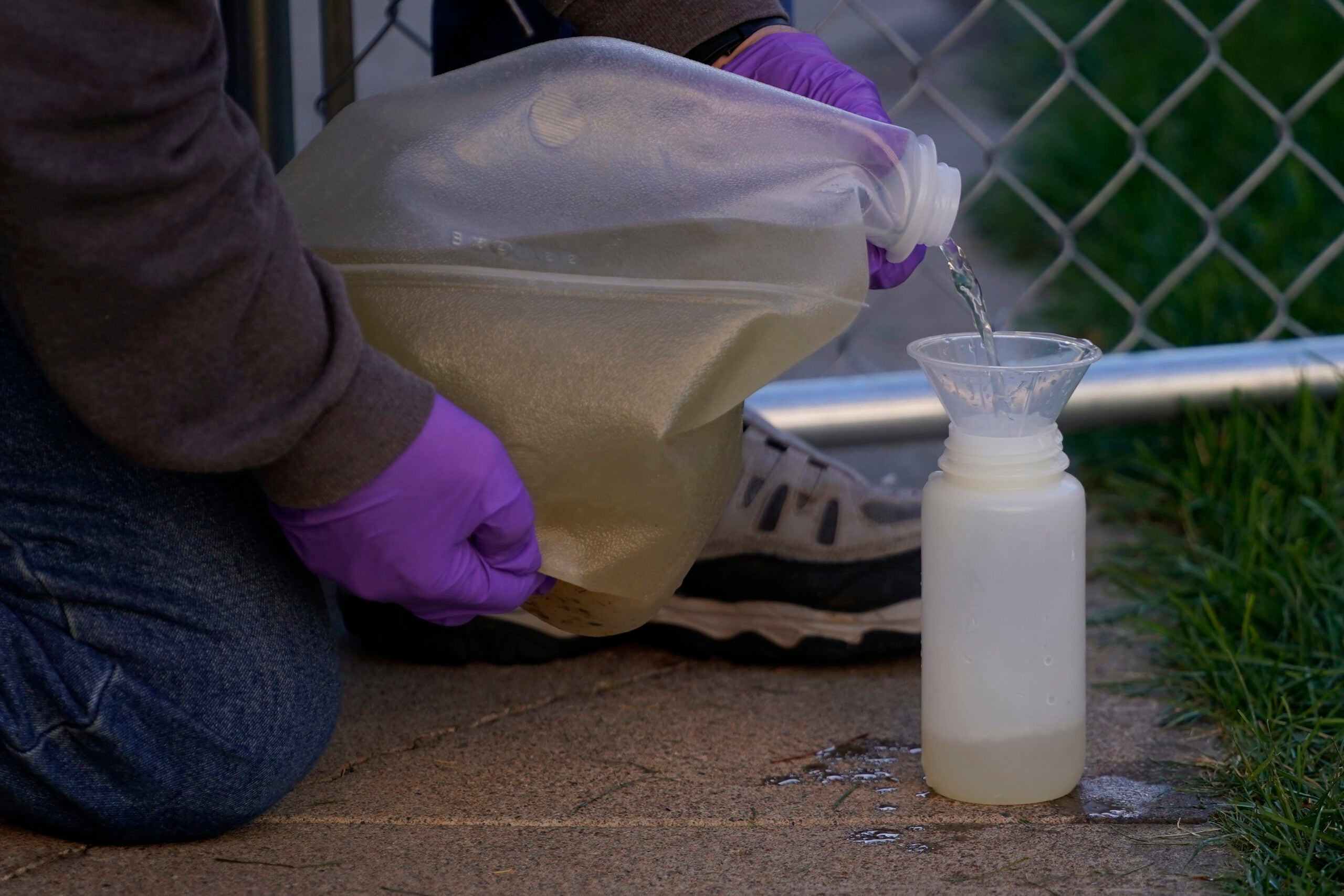The number of new COVID-19 infections remains low in Wisconsin, but there are signs that could change based on a wastewater network tracking the disease.
The state Department of Health Services reported on Tuesday a “major increase” in SARS-CoV-2 concentration in wastewater in De Pere, Fox River, Green Bay, Plateville and Milwaukee’s Jones Island and South Shore.
But the state’s top health official said it’s too early to say what the data means as far as a looming spike in COVID-19 cases.
News with a little more humanity
WPR’s “Wisconsin Today” newsletter keeps you connected to the state you love without feeling overwhelmed. No paywall. No agenda. No corporate filter.
Speaking at a Wisconsin Health News event Tuesday, DHS Secretary-Designee Karen Timberlake said the agency is still analyzing the data.
“We’ve seen little ebbs and flows in the levels of the virus just from our testing results over the last two years, so we’ll know more in the next couple of days to weeks,” she said.
As of Tuesday, the seven-day average of new cases of COVID-19 was 353, the lowest it’s been since July 25, 2021.
Last month the Centers for Disease Control and Prevention started posting wastewater surveillance on its online COVID-19 tracker for municipal sewer systems across the county.
The most recent data shows COVID-19 is rising in more than a third of the United States.
Wisconsin has been analyzing wastewater during the pandemic for signs of COVID-19 since December 2020. Throughout the pandemic, health departments have followed the lead of the CDC and looked at testing and hospitalizations to get a sense of how widespread the virus is in a community.
But Timberlake said wastewater surveillance can provide needed information on a possible outbreak sooner.
“This allows us to be more proactive especially as more people are using at home tests which are not recorded by state,” she said.
Wastewater surveillance is how four states first detected the omicron variant, according to a CDC January report detailing efforts in New York, California, Texas and Colorado.
While the Wisconsin State Laboratory of Hygiene has been tracking COVID-19 in wastewater since early in the pandemic, it is still fine-tuning its ability to do genomic sequencing of specific variants, spokesperson Jan Klawitter told WPR last month.
Wisconsin Public Radio, © Copyright 2025, Board of Regents of the University of Wisconsin System and Wisconsin Educational Communications Board.







